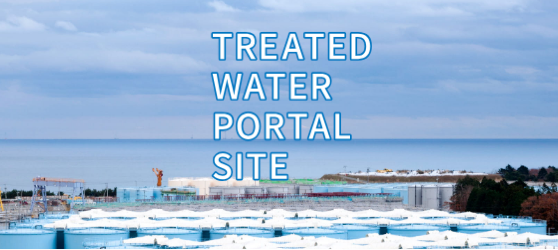Business Risk
The following primary risk factors to which the Company and its Group are subject may exert a significant influence on investor decisions. Issues that may not necessarily be relevant as risk factors are also presented below in keeping with Company's vigorous efforts to disclose information to its investors.
The Company has built a risk management system in which the President serves as General Manager and the Chief Risk Management Officer serves as Manager of Risk Operations and Management, and in cooperation with the presidents of each core operating companies and the directors in charge of risk management, etc., they oversee the Group's risk management both in normal times and when risks manifest. The Directors and Executive Officers periodically and as needed, identify and evaluate the business risks associated with the Company and its Group. These risks are then reflected as appropriate onto the annual management plan. Internal rules are also in place to ensure appropriate risk management across the entire Group.
Risks are generally managed by the relevant department as they are executing their work in conformity with the internal rules. Risks that span multiple departments are reviewed by a cross-organizational committee, then managed appropriately.
The Risk Management Committee headed by the Executive Officer and President manage risks that could have a significant impact, minimizing the impact that the risk poses on management by preventing the materialization of the risk and responding swiftly and accurately should the risk materialize. Employees also receive periodic training on relevant laws, internal rules, and manuals.
However, the operating environment surrounding the Company and its Group remains harsh and the Company's business operations may be significantly affected if the following risks materialize. Risks are listed in the order of importance determined by the magnitude of the potential impact on the business and likelihood of occurrence.
The forward-looking statements included in the following represent estimates as of the moment.
(1) Decommissioning of Fukushima Daiichi Nuclear Power Station
| Level of impact | Very high | Occurrence possibility | High | Potential risk | The Company is pushing forward with decommissioning work, while paying maximum attention to safety, in accordance with the Mid-and-Long-Term Roadmap towards the Decommissioning of TEPCO HD’s Fukushima Daiichi Nuclear Power Station (hereinafter the "Mid-and-Long-Term Roadmap"). However, there are technically uncertain and unresolved issues related to fuel debris retrieval, which has never been done before, and in the event of problems such as physical contamination or leakage of contaminated water, it is possible that the decommissioning work will not progress as planned. With regard to Advanced Liquid Processing System treated water (hereinafter “ALPS-treated water”), the ocean discharge is in progress based on the government's basic policy, but there is a possibility that the discharge will be discontinued due to the occurrence of problems, such as facility inspection failures and insufficient checking, facility shutdowns resulting from operating errors, etc. Contingencies also include inadequate dissemination of information about the ALPS-treated water monitoring results and facility status, and a lack of understanding from the community and society at large due to dishonest handling of compensation, etc. With regard to contaminated water, although we are steadily reducing the amount of contaminated water generated by taking multi-layered measures including groundwater inflow control, there is a possibility that the generation of contaminated water may not be suppressed as planned due to heavy rainfall and other reasons. If these decommissioning efforts do not proceed smoothly and take longer than planned, the TEPCO Group’s business performance, financial condition and operations may be affected. | Response measures |
As this decommissioning challenge is unprecedented in the world, the Company has developed the "Mid- to Long-term Decommissioning Action Plan" based on the Mid-and-Long-Term Roadmap, which is a major goal to be pursued, and also on new information and findings that are gradually obtained. To “balance recovery with decommissioning” and “to fulfill our responsibility to Fukushima”, we will communicate the progress made in decommissioning work and future projections even more carefully and in an easy-to-understand manner to gain the understanding of the region and society. The Company will continue to gather new information and knowledge one by one through measures such as trial fuel debris retrieval from Unit 2, and will regularly review the "Mid- to Long-term Decommissioning Action Plan" based on the progress and issues in order to steadily work toward completing decommissioning in 30 to 40 years as planned, while paying maximum attention to safety. Considering the troubles that have occurred thus far, we recognize that the Fukushima Daiichi Nuclear Power Station faces numerous unprecedented challenges in a harsh high-radiation environment. We continue to identify risks associated with each task, develop countermeasures, and implement activities accordingly. Furthermore, in light of incidents such as the interruption of trial fuel debris retrieval, the Company has taken measures as the implementing entity to confirm detailed procedures from the preparation stage of the work. We will also build a collaborative system at the on-site level under the keyword "One Team" sharing the objectives of decommissioning with companies involved in the decommissioning process, including local businesses, and transcending the roles of the ordering and contracting parties to achieve these goals. With regard to the ocean discharge of ALPS-treated water, the Company will establish a system that oversees relevant departments company-wide, and strive to (1) ensure the safety and quality of plant operations, (2) promptly monitor and accurately disseminate information, (3) ensure transparency through IAEA reviews, etc., and (4) take measures respond to adverse impact on reputation. We will also provide appropriate compensation for any damage that may occur. In addition, we will communicate the discharge status to stakeholders and society at large in a timely manner to earn trust in Japan and overseas. Furthermore, the Company’s multilayered measures to reduce the amount of contaminated water generated include repairing the building’s roof and paving the inner side of land-side impermeable wall, and waterproofing some parts of the building. |
|---|
(2) Stable supply of electricity
| Level of impact | Very high | Occurrence possibility | High | Potential risk | Major natural disasters, equipment accidents, sabotage, including terrorist acts and riots, fuel supply disruptions, and outbreaks of infectious diseases may cause extended, widespread power outages and other problems and result in an inability to ensure stable power supply. Such cases could affect the TEPCO Group's business performance and financial condition, while damaging public trust and adversely affecting business operations. | Response measures |
To address supply capacity shortages (reserve margin shortages) at the planning stage, in conjunction with the start of the capacity market operation in FY2024, the government and the Organization for Cross-regional Coordination of Transmission Operators will lead discussions on both supply-side measures (e.g., open recruitment of kW) and demand-side measures (e.g., demand response). The Company will cooperate to maintain stable supply and respond appropriately to these efforts. In daily operations, the Company checks on the short-term supply and demand projections on a weekly basis, and operates additional power supply sources and implements demand response at appropriate times based on wide-area reserve margin, while also disseminating information. Specifically, in preparation for increasingly severe and wide-spread natural disasters, facilities are being reinforced based on the damage projections issued by the Cabinet’s Central Disaster Prevention Council with a focus on strengthening electricity resilience. To prevent accidents at facilities, aging facilities are being updated systematically and efficiently to maintain stable supply. To protect against acts of terrorism, riots and other acts of sabotage, the Company is maintaining close ties with relevant organizations from ordinary times. To reduce the overall damage caused these contingencies, facilities that connect multiple transmission grids are multiplexed to minimize the scope and duration of outages due to equipment failure. In order to quickly recover damaged facilities, digital technology will be actively used, electricity supply methods such as storage batteries and electric cars as distributed power sources will be diversified, resources to aid in recovery will be secured, a Group-wide structure for disaster response developed, internal training on various hazard scenarios conducted, and coordination with parties concerned such as the Japan Ground and Maritime Self-Defense Force, government, municipalities, general transmission and distribution operators will be strengthened. With regard to fuel procurement, in order to also address the fuel procurement risk due to increased global demand for LNG resulting from rising international tensions and other factors, JERA will continue its efforts to procure fuel in the most stable and flexible manner possible by leveraging the flexibility of its fuel portfolio and fuel trading through JERA Global Markets, while the Company continues to monitor the situation. With regard to measures against infectious diseases, the Company will continue to reinforce basic infection control measures and utilize telework and staggered work hours to ensure the health and safety of its employees, while taking appropriate responses by monitoring structural changes in the power industry due to the spread of infectious diseases and changes in the business model based on social trends. |
|---|
(3) Nuclear power generation and nuclear fuel cycle
| Level of impact | Very high | Occurrence possibility | High | Potential risk | The revision of Japan’s nuclear policy and the tightening of safety regulations by the Nuclear Regulation Authority may impact operations of the TEPCO Group’s nuclear power generation and nuclear fuel cycle businesses, as well as the Group's business performance and financial condition. Nuclear energy is described in the 7th Strategic Energy Plan as "essential to maximize the use of energy sources such as renewable energy and nuclear power that contribute to energy security and have high decarbonization effects." It is an essential power source not only from the perspective of achieving carbon neutrality, but also from the perspective of providing a stable supply of low-cost electricity and strengthening resilience. The Company is strengthening safety measures and promoting organizational reforms with strong determination not to repeat a severe accident. However, if the outlook for the restart of nuclear power plants becomes uncertain, thermal fuel costs will rise, unnecessary fuel assets will be generated, and the asset value of power generation facilities will be changed. These situations could impact the TEPCO Group’s business performance and financial condition. The back-end of decommissioning, including spent fuel reprocessing, disposal of radioactive waste, and dismantling of nuclear power generation facilities, requires large capital spending and a long period of operation. Institutional measures have been taken to ensure that these processes are implemented properly and without delay. Specifically, a system has been established to contribute to the costs required for the reprocessing of spent fuel, the disposal of radioactive waste, and the dismantling of nuclear power generation facilities. Although such government measures have mitigated uncertainties related to the back-end business, factors that could affect the TEPCO Group's business results and financial condition include revision of the government systems, a higher estimate for future costs outside of these measures, operating conditions at JNFL's Rokkasho Reprocessing Plant and other facilities, and procedures for the decommissioning of the uranium enrichment plant at the same site. |
Response measures |
Regarding nuclear power generation, we have conducted assessments of the integrity of Unit 7 at the Kashiwazaki-Kariwa Nuclear Power Station and have confirmed that the key equipment necessary for reactor startup can function properly. Preparations are also underway for the restart of Unit 6. We will continue to enhance the safety of the plant and implement improvements related to nuclear material protection, addressing each initiative carefully. Additionally, we will provide thorough explanations of the plant's efforts to address the concerns and anxieties of the local community. Furthermore, part of the headquarter functions has been moved to Kashiwazaki City, Niigata Prefecture where the nuclear power plant is located to promote site-oriented, regionally symbiotic business operations through integrated management of the head office and the power plant, and a system will be established to reflect the opinions of local residents on the power plant operation. With regard to the back-end business, the Company will ease uncertainties by taking appropriate actions in accordance with national policies and related institutional measures, while closely monitoring future trends in policies and systems. The Company will also cooperate in the promotion of nuclear fuel cycle projects, including the Rokkasho Reprocessing Project and the uranium enrichment project. With regard to the final disposal of high-level waste, the Company, as a waste generator with fundamental responsibilities, established an information desk for inquiries as part of its cooperation with the government and the Nuclear Waste Management Organization of Japan (NUMO) to actively promote understanding for the realization of geological disposal. |
|---|
(4) Electricity sales volume, sales price, and power source procurement costs
| Level of impact | Very high | Occurrence possibility | High | Potential risk | Power source procurement costs and sales prices may be affected by soaring fuel prices and wholesale electricity prices resulting from rising international tensions and currency fluctuations, as well as changes in the power source procurement structure. In addition, sales prices may be affected by competition in the electricity retail market. In addition, electricity sales volume may be directly impacted by temperatures and the weather, economic and industrial activities, power savings, energy conservation and policies to realize carbon neutrality in addition to competition in the retail market. As a result of the above, the TEPCO Group's business performance and financial condition might be affected, though the “fuel cost adjustment system” and the “fuel cost, etc. adjustment system” will cushion the impact of some fluctuations in fuel prices, foreign exchange rates, and wholesale market prices on performance. | Response measures |
With regard to power source procurement costs and sales prices, the Company is working to minimize the impact of the aforementioned risks by introducing hedged trading using electricity derivatives, and reducing costs through expansion of procurement channels. In addition, in order to appropriately reflect the latest sales and power source procurement trends in the electricity rates for extra high-voltage and high-voltage customers, we revised the calculation basis for fuel cost, etc. adjustments from April 2024. Regarding sales volume, in response to the needs of customers who want rate plans that control price fluctuations, we have begun offering three types of electricity rate plans with different ratios of market price adjustments. We will further reinforce management efficiency and improve the TEPCO Group's financial condition, while reducing the burden on our customers by providing services that meet customer needs and market conditions and by diminishing the impact of wholesale electricity market prices, etc. by partially incorporating power from restarted nuclear power plants in the calculation of sales prices. |
|---|
(5) Thermal power generation fuel costs
| Level of impact | High to very high | Occurrence possibility | Medium to high | Potential risk | The prices for liquefied natural gas (LNG), crude oil, coal and other fuels change according to factors that include international fuel market conditions and foreign exchange market trends, which could affect the TEPCO Group's business performance and financial condition. In particular, a global surge in fuel prices due mainly to rising international tensions may affect the TEPCO Group's business performance and financial condition. | Response measures |
At JERA, efforts are being made to respond to risks associated with fuel price fluctuations through price competitiveness that leverages a world-class procurement scale, a fuel portfolio with strong responsiveness to price fluctuation risks, and fuel trading and hedging in the futures market through JERA Global Markets. |
|---|
(6) Changes in the electricity business structure and energy policy
| Level of impact | High to very high | Occurrence possibility | Medium | Potential risk | The TEPCO Group's business performance and financial condition could be affected by changes to the policy environment such as changes in energy policy, including structural changes in the electricity industry and as well as tighter regulations related to global warming. | Response measures |
The Company will comprehensively and proactively collect necessary information on energy policies, systems related to the electricity business, and trends in environmental regulations, and explain the TEPCO Group's approach through various forums in cooperation with relevant sections while taking necessary measures. |
|---|
(7) Customer services
| Level of impact | High to very high | Occurrence possibility | Medium to high | Potential risk | Customer service in violation of laws and regulations and other issues could significantly undermine customer satisfaction and public trust in the Group's services and affect the business performance, financial condition and smooth operations of the Group. | Response measures |
At TEPCO Energy Partners, which is responsible for sales activities, the Company conducts practical training and education, as well as maintaining response scripts to improve customer services. Additionally, the Company utilizes 'customer feedback' collected through phone calls and visits to enhance operations. The Sales Quality Management Committee, chaired by TEPCO Energy Partners 's president and including outside members such as lawyers and directors from consumer organizations, as well as relevant officers and department heads as committee members, meets at least more than once every half year. This committee evaluates and confirms various initiatives aimed at preventing the recurrence of inappropriate incidents, the status of responses to amendments of related laws, and improvements to customer web procedures. These evaluations are conducted across the organization to enhance sales quality and are utilized to further improve business operations. |
|---|
(8) Securing safety, quality control, and preventing environmental pollution
| Level of impact | High to very high | Occurrence possibility | Medium to high | Potential risk | The TEPCO Group works to secure safety, control quality and prevent environmental pollution while focusing on maintaining highly transparent and reliable information disclosure. However, the smooth execution of operations could be affected if the public's trust in the Group is violated by such events as 1) the occurrence of an accident, fatality or large-scale emission of pollutants into the environment as the result of such causes as operational error or breach of laws or internal regulations, and 2) in appropriate public relations and information disclosure. | Response measures |
With the aim of fulfilling its social responsibilities, the TEPCO Group has established the "TEPCO Group Charter of Corporate Conduct," based on which we place safety as the top priority in all aspects of business activities, and continuously evaluate and improve safety management initiatives based on rules and measures that are effective in safety activities and compliance with laws and regulations. The nuclear operation business is especially committed to improving safety and quality based on an on-site and actual-products perspective by instructing managers to check and improve the status of on-site equipment and personnel on a regular basis. These efforts will be continuously improved based on guidance and advice from external experts. In terms of quality control and environmental management, rules and manuals have been established to reinforce thorough compliance, and the status of compliance is checked through internal audits and necessary improvements are made as appropriate. With regard to information disclosure, efforts are being made to convey necessary information accurately and promptly to our customers, local communities, and society at large. |
|---|
(9) Corporate ethics and compliance
| Level of impact | High to very high | Occurrence possibility | Medium to high | Potential risk | The TEPCO Group works to firmly establish business operations that comply with corporate ethics. However, the violation of laws and regulations or other acts contrary to its corporate ethics could damage public trust in the Group and affect smooth business operations. Particularly in the area of "human rights", which has been increasingly demanded of companies in recent years, if human rights violations occur due to a lack of understanding on the part of employees of the Company and its Group companies, criticism toward the Company may adversely affect smooth business operations. The nuclear power business, under the policy to foster safety culture among workers and nuclear security culture, is conducting training and dialogue activities to clarify specific actions that each worker is required to take in real situations. However, if such efforts prove insufficient, TEPCO Group's social credibility could be undermined and smooth business operations may be negatively impacted. | Response measures |
The "TEPCO Group Charter of Corporate Conduct" and the "Code of Conduct Related to the Corporate Ethics and Compliance Policies of the TEPCO Group" have been established to clarify the Company's direction and specific actions to be followed by directors and employees. The TEPCO Group Corporate Ethics Committee, chaired by the President and composed of members including external experts, has been formed to deliberate and decide on various measures to firmly establish corporate ethics and receive guidance and advice on the status of implementation. A manager and staff members in charge of corporate ethics assigned to each organization ensure that activities to firmly establish corporate ethics are implemented by the TEPCO Group as a whole. In addition, periodic awareness surveys are conducted to check the degree to compliance with corporate ethics, and the future action policy is determined based on the survey results. Furthermore, corporate ethics hotlines are set up within and outside the Company for use by the entire TEPCO Group with the aim of preventing violations of corporate ethics across the Group. In promoting respect for human rights, the Company works on the basis of the "TEPCO Group Human Rights Policy" (August 2021), which complies with the United Nations Guiding Principles on Business and Human Rights. Specifically, we have established a human rights due diligence system, provided education through e-learning and training, and established a reporting desk that all stakeholders can use as a grievance mechanism. We proactively disclose information about the process of these efforts and the results of our evaluation of their effectiveness. In the nuclear power generation business, in response to the incident related to nuclear material protection at the Kashiwazaki-Kariwa Nuclear Power Station, the Company is working to improve internal communication and employee motivation through dialogue between the management and power plant workers, which led to the creation of the "Purpose of the Power Station", and the appointment of external experts, in order to achieve a power station that is trusted by regional residents. |
|---|
(10) Information management and security
| Level of impact | High to very high | Occurrence possibility | High | Potential risk | If human error or cyber incidents were to disrupt power supply or customer services, or if the Group’s customer information or important business information were to be leaked, the TEPCO Group’s public trust could be damaged and its business operations could be seriously affected. | Response measures |
To deal with increasingly sophisticated and advanced cyber incidents, efforts are being made to strengthen cyber security by all possible means, including threat analysis based on nuclear business progress and geopolitical changes, defensive measures, continuous monitoring, and response and recovery training. For managing important information, the Company has established internal rules and conducts training and awareness programs for employees regarding the impact of information leaks on customers and society. We also implement system measures, including proper access control within internal systems and restrictions on exporting information to external storage media. |
|---|
(11) Procurement of materials and goods
| Level of impact | High | Occurrence possibility | High | Potential risk | The occurrence of large-scale disasters, the intensification of international tensions, the spread of infectious diseases, along with rising prices, labor shortages particularly in the construction industry, and increased third-party risks such as bankruptcies or withdrawals of domestic and overseas suppliers, as well as reduced supply of materials with high dependence on overseas sources, could disrupt the supply chain. This could put upward pressure on procurement costs and strain procurement plans, affecting Group's business performance, financial condition, and smooth operation. Furthermore, if the TEPCO Group or its suppliers is found to be complicit in the destruction of the environment or in the infringement of human rights in the TEPCO supply chain, TEPCO's social credibility could be lost affecting business operations. | Response measures |
In order to ensure the sustainability of the TEPCO Group's supply chain, the Company has established a supplier registration system to ensure the eligibility of suppliers in advance, while also working to diversify its suppliers under the policy of promoting competition and expanding co-creation with the aim of achieving coexistence and co-prosperity of the Group's entire supply chain through its Declaration of Partnership Building. In the event of material delivery delays or production unavailability, we manage these issues by placing orders early, considering alternatives, and avoiding the risk of product shortages through thorough inventory management and process adjustments. To address rising prices and labor shortages, we are actively working to manage procurement costs by strategically planning the acquisition of materials and personnel in close collaboration with our suppliers, while also focusing on expanding the utilization of local companies. To mitigate third-party risks, we are committed to monitoring supplier trends and exploring alternative trading partners. Furthermore, in light of the growing interest in environmental problems and human rights issues as well as its importance, we have recommitted to realizing a sustainable society through its supply chain as a whole: the “TEPCO Group Basic Procurement Policy” was revised accordingly and a new “Sustainable Procurement Guide” issued to suppliers while also monitoring on the progress made on environmental and human rights issues and building trust with suppliers through dialogue. |
|---|
(12) Fluctuations in prices and interest rates
| Level of impact | High | Occurrence possibility | High | Potential risk | The TEPCO Group owns numerous facilities necessary for domestic electricity operations, including generation, transmission, and distribution equipment. To systematically advance the construction and renewal of these facilities, substantial investment funds are required, and in recent years, the amount of capital investment has exceeded depreciation expenses. To finance these necessary funds, we are procuring capital not only from our own resources but also through loans from financial institutions and the issuance of corporate bonds. As of March 31, 2025, the TEPCO Group's interest-bearing debt balance will amount to 6.5097 trillion yen, equivalent to 43% of total assets. Therefore, fluctuations in prices and interest rates may lead to variations in capital investment and interest payments, which could affect the Group's performance and financial condition depending on future trends. |
Response measures |
Regarding capital investment, we will prioritize the stability of electricity supply as a fundamental principle, while conducting thorough investment scrutiny and management rationalization over the medium to long term, aiming to maximize profitability and capital efficiency. Additionally, to reduce the risk of interest rate fluctuations, we are making efforts to secure funding through the issuance of fixed-rate corporate bonds in relation to interest payments. |
|---|
(13) Initiatives related to climate change, etc
| Level of impact | High | Occurrence possibility | Medium | Potential risk | Having announced targets to "Reduce CO2 emissions originating from the sale of power to 50% of FY2013 levels by 2030" and "Reduce CO2 emissions originating from the supply of energy to essentially zero by 2050", the TEPCO Group is striving to contribute to the realization of carbon neutral society. However, the passing of the GX Promotion Bill which will introduce growth-oriented carbon pricing and other tightening of CO2 emissions regulations, increase in consumers self-generating and self-consuming electricity using solar power and storage batteries, and decline in sales volume from the spread of local generation and local consumption could negatively affect the TEPCO Group's business performance, financial conditions, business operations and corporate image. Change in investor behavior driven by ESG concerns may also affect the TEPCO Group's financing and stock price. | Response measures |
While working on both long-term stable supply and CO2 reduction, the Group will shift its business focus onto "carbon neutrality" and integrate its efforts to focus on two pillars of 1) developing renewable energy and other zero-emission power sources, and 2) promoting the electrification of energy demand. For the tightening of regulations, the Company will proactively gather information from a wide range of sources on the information on the design of systems to address climate change including the GX Promotion Bill, and explain the TEPCO Group's approach through various forums in cooperation with relevant sections while implementing necessary measures. As society transitions to a large-scale power sources and bulk power transmission society to a local generation, local consumption society based on self-generation and self-consumption, the Company will radically shift the business model from an electricity (kWh) sales model to an equipment and services business focusing on our ties with our customers. This new business will be expanded on a society, community, and “town-” basis across regions. The country-wide expansion of the equipment and services/aggregation business will be placed at the core of the business model transition, and alliances will be built with various business partners. To address changes in investor behavior driven by ESG concerns, a structure has been established to incorporate global ESG trends into management through the appointment of the ESG Committee and ESG Officer, and measures are being taken to identify ESG issues, implement internal reforms, and enhance ESG information disclosure. The Company will also steadily and accurately respond to the initiatives described in the Carbon Neutral Roadmap and new requirements such as biodiversity, while engaging with shareholders and investors to expand their understanding of its businesses and initiatives. |
|---|
(14) Management reform initiatives based on The Fourth Comprehensive Special Business Plan
| Level of impact | High | Occurrence possibility | Medium to high | Potential risk | In order to fulfill its responsibilities to Fukushima, the TEPCO Group will continue to work on discontinuous management reforms, including productivity reforms, promotion of reorganization/integration and other forms of collaboration, and the strengthening of its business base, with the aim of securing funds for compensation and decommissioning and improving corporate value. As an operator of nuclear power plants, the Group will undertake fundamental reforms by placing the top priority on restoring trust of regional residents and society at large, but if trust is not fully restored and the management reforms do not proceed as planned, the Group's business performance, financial condition, and operations may be affected. Additionally, considering the ministerial directives related to the fourth comprehensive special change certification in March 2025, we will promote discussions on measures for improving financial performance, while also compiling initiatives aimed at achieving a balance between stable supply and decarbonization in response to environmental changes such as advancements in DX/GX, including long-term efforts to enhance corporate value through alliances. It is necessary to reflect these efforts in the next comprehensive special plan, but if there are delays in compiling the discussions due to changes in domestic and international circumstances or other factors, it may affect our financial performance and business operations. |
Response measures |
In order to realize management reforms based on The Fourth Comprehensive Special Business Plan, action plans specifying responsible persons, deadlines, and objectives to be achieved have been prepared and are in progress. The progress of each action plan is monitored according to its level of importance, and the plans will be achieved through the PDCA cycle. For the purpose of regaining the trust of the regional community and society at large, management reforms, including nuclear operations, will be steadily implemented to allow autonomous organizational improvements based on Group-wide efforts, including the upper management, to recognize one's weaknesses/issues. We will increase our corporate value by streamlining management through productivity reforms based on "Kaizen" (continuous improvement) and by providing new values centered on carbon neutrality and disaster prevention. In promoting these efforts, we will steadily implement management reforms, while also considering the recommendations of the "Results of Review and Evaluation of TEPCO’s Management Reform Initiatives" issued in December 2023 by the Nuclear Damage Compensation and Decommissioning Facilitation Corporation. Furthermore, regarding the discussions for the next comprehensive special plan, we will closely collaborate with relevant internal and external organizations, including the Nuclear Damage Compensation and Decommissioning Facilitation Corporation, to ensure that there are no delays in the process. We will advance the examination of measures for improving financial performance and initiatives that address changes in the business environment, as well as manage the processes leading to management discussions. |
|---|
(15) Acquisition of TEPCO shares by the Nuclear Damage Compensation and Decommissioning Facilitation Corporation (NDF)
| Level of impact | High | Occurrence possibility | Medium to high | Potential risk | On July 31, 2012, TEPCO issued Preferred Stocks (Class A Preferred Stocks and Class B Preferred Stocks; collectively, the "Preferred Stocks") through private placement with NDF. Class A Preferred Stocks carry voting rights to be exercised at the General Meeting of Shareholders as well as the right to convert the shares into Class B Preferred Stocks and Common Shares. Class B Preferred Stocks do not carry voting rights at the General Meeting of Shareholders, unless otherwise provided for in laws and regulations, but have the right to convert the shares to Class A Preferred Stocks and Common Shares. The NDF holds more than half of the total voting rights by underwriting the Preferred Shares, so that the exercise of such voting rights at the General Meeting may affect TEPCO Group's business operations. If NDF exercises its right to convert Class B Preferred Shares into Class A Preferred Shares, or if it exercises its right to convert the Preferred Shares into common shares, there is a possibility that the existing shares will be diluted. In particular, if the right to convert into common shares is exercised, the dilution of the existing shares may result in a decline in the share price of the holding company TEPCO HD, and if NDF sells such common shares on the market, the share price of the holding company TEPCO HD may be further affected depending on the market environment at the time of sale. | Response measures |
Placing the highest priority on fulfilling its responsibilities to Fukushima, the TEPCO Group will continue to make its utmost efforts to restore public trust and enhance corporate value, including responding to recommendations from the Nuclear Damage Compensation and Decommissioning Facilitation Corporation's Operating Committee, as part of its efforts for management rationalization. |
|---|
(16) Businesses other than electric power
| Level of impact | High | Occurrence possibility | Medium | Potential risk | The TEPCO Group operates businesses other than electric power, including overseas businesses. These businesses may not yield outcomes anticipated at the time of investment due to rising international tensions, climate change, changing customer needs, changing market conditions (increases in prices and interest rates, other companies' trends, etc.), human rights violations in the supply chain, and threats to employees' lives and health, etc., in addition to changes in the Group’s management conditions, and may adversely affect the Group’s business performance and financial condition. | Response measures |
Efforts are being made to become more sensitive to changes in political and economic conditions that may affect the TEPCO Group’s business and the safety of its employees, particularly increasing geopolitical risks, and to avoid and mitigate risks by gathering timely local information in cooperation with its overseas offices. The Group carefully selects projects to be implemented by establishing strict investment screening criteria, which include risk assessments of investment profitability due to factors such as rising construction costs and increasing interest rates. For ongoing projects, it monitors profitability and risks on a quarterly basis and withdraws or downsizes unprofitable projects, thereby striving to improve investment performance. |
|---|
















